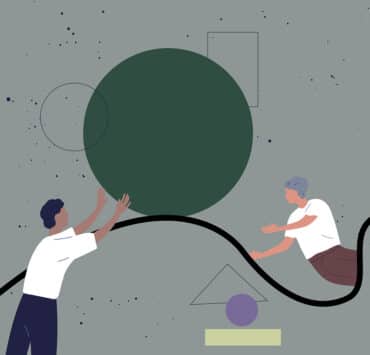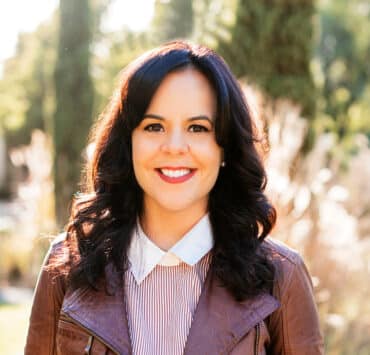|
Getting your Trinity Audio player ready...
|
As CEO and founder of We Tha Plug, Luis Martinez is working tirelessly to create an ecosystem geared specifically toward Black, Latino, and other underserved entrepreneurs. Recognizing that people are the most critical connection point, We Tha Plug works to address the many challenges those founders face in terms of of access, information, and training.
Here, Martinez reflects on his first year as founder and CEO of this ecosystem. A natural introvert, he nonetheless has a capacity for network-building that is helping to create support, education, and access to capital for others who—like Martinez himself—want to make their dreams a reality.
I’ve known I was going to be an entrepreneur in some way, shape, or form since the early 2000s. I started by selling Kirby vacuum cleaners—I wasn’t selling them like hot cakes, but I did all right—and then I moved into internet sales. We were just moving on from dial-up, and broadband internet was the next big thing. It took me retelling my story a half-dozen times before I realized that I’ve truly been working in tech since 2002. It wasn’t flashy, but it was still tech.
After grad school, I found myself volunteering and helping to organize our local start-up week here in San Diego. It didn’t take long for me to realize that there was a dramatic lack of Black and Latinx entrepreneurs that were available to be part of our events. That started a series of conversations that would ultimately result in the creation of We Tha Plug.
“If a community doesn’t understand how the start-up space works, how are they going to succeed in it?”
Luis Martinez
Over time, I became the director of inclusion for Startup San Diego, and I kept having these conversations. The deeper I dug, the more I found that there are real issues when it comes to diverse people having access to resources and training, let alone capital.
At the Startup Grind Global Conference in Silicon Valley, I wanted to try and get together with several Black founders and see what kind of ideas we could generate about bettering our situation. I hoped a few people would show up. There wound up being more than eighty of us.
What I took away from this incredible conversation was that these founders wanted to be part of a community. They wanted policy. And they wanted access to capital and programming that would fit their needs. For example, a 12:30 p.m. lunch-and-learn just isn’t feasible for working folks who are providing for their families. That automatically excludes a certain segment of people who could be taking away valuable insights from those presentations.
I took down everyone’s information by hand and created a Slack channel, and that was the beginning of We Tha Plug.
When I think about the challenges of our first year, the number one thing that comes to mind is profitability. We had a national scope for this organization from its founding, not necessarily a local one. That’s a much larger effort than putting together a local chapter.
I’m not sure I would have done anything differently looking back, but I would stress the importance of finding folks who understand how to build a community that can be monetized. Plan and break down those strategies from the get-go, because it’s vital for sustainability—especially when you’re providing services and resources of value to a community. It’s been a challenge for us and definitely took some time.
“It didn’t take long for me to realize that there was a dramatic lack of Black and Latinx entrepreneurs that were available to be part of our events.”
Luis Martinez
We’ve also shifted our mission to focus on some of the essential building blocks of building a company. We found that these essential basics just weren’t being addressed in any ecosystem. If a community doesn’t understand how the start-up space works, how are they going to succeed in it?
But those challenges are far outweighed by our victories so far. We have created a great partnership with the University of California, San Diego: together, we’re creating and presenting a lot of programming for minorities on capital access and entrepreneurship.
We’ve also established a partnership with California Life Sciences, the state’s most influential and impactful life sciences membership organization. They are very serious about advocating for the sector and its diverse innovation pipeline, and it’s been amazing to see the value we can provide for that organization.
From a national perspective, We Tha Plug has helped connect many Black and underserved founders. Together, myself and several Black-led entrepreneur serving organizations (ESOs) founded the Black Innovation Alliance, which strives to help entrepreneurs of color succeed by ensuring their fair participation in the innovator economy.
Members of Congress also created the Black Congressional Caucus on Innovation, which was a brainchild of the Black Innovation Alliance. Led by US Representatives Stacey Plaskett (D-VI), Marilyn Strickland (D-WA), and Ritchie Torres (D-NY), the Black Congressional Caucus on Innovation aims to engage policymakers in advancing full Black inclusion in the innovation economy and has emerged as a direct result of the Black Innovation Alliance’s advocacy.
For those on their own journeys, I would say this: one phrase I hear a lot is, “I’m the only person of color in the room.” This is something you’re going to have to get over quickly. You are going to get hit with all the microaggressions and strange looks you can imagine, and it’s going to be hard. But that is life for us right now. Know what you’re getting into, and go all the way. Keep your eyes on the prize and don’t let those pitfalls distract you from reaching your goals.

